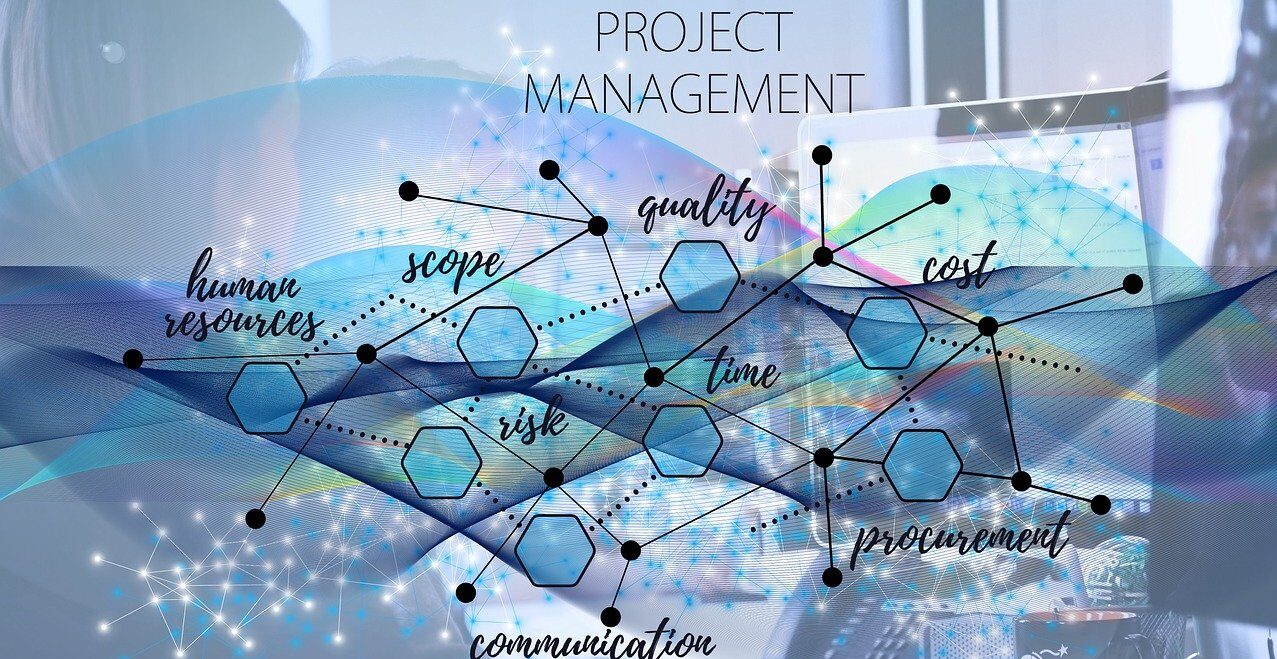PROJECT MANAGEMENT
What is Project Management?
Project management refers to the practice of planning, organizing, and coordinating resources in order to achieve specific goals or objectives within a defined time frame. It involves a systematic approach to initiating, planning, executing, controlling, and closing projects while ensuring that all the project goals are achieved within the given constraints of scope, time, budget, and quality. Effective project management requires the use of tools, techniques, and processes to ensure that all project activities are completed efficiently and effectively.
Project management involves several key components, including defining project goals and objectives, identifying project stakeholders, creating a project plan and schedule, allocating resources, monitoring progress, managing risks and issues, and closing out the project. Effective project management requires a combination of technical skills, such as project planning and budgeting, as well as interpersonal skills, such as leadership, communication, and team management. Successful project management requires collaboration between team members, clear communication, and a focus on achieving project goals while staying within budget and meeting deadlines.
Project management is used in a variety of industries, including construction, engineering, software development, healthcare, and finance, to name a few. It is an essential process for ensuring that projects are delivered successfully, meeting the desired outcomes and achieving the objectives set out at the outset. A Project Manager is responsible for overseeing the project team, managing the budget, and ensuring that the project is completed on time and within budget and to the satisfaction of all stakeholders.
Additional Reading
What is Product Management?
What is Program Management?
The career path of a Project Manager
The career path of a Product Manager
The difference between a Manager and a Leader
Why is project management important?
Effective project management is essential for the success of any project. It helps ensure that projects are completed on time, within budget, and to the required quality standards. It also helps minimize risks and mitigate issues that can arise during the project.
Project management provides a framework for effective communication and collaboration among team members, stakeholders, and vendors. It helps ensure that everyone is on the same page, working towards the same goals and that expectations are managed throughout the project lifecycle. In addition, project management provides a clear structure for accountability and decision-making. The project manager is responsible for ensuring that tasks are completed on time, resources are managed effectively, and that any issues or risks are addressed promptly.
This blog discusses some of the highlights of Project Management, which include the project management processes, tools and techniques. Project Management process consists of five stages: initiation, planning, execution, monitoring and controlling, and closure.
Processes of Project Management
1. Initiation: The initiation stage is where the project is defined, and the project manager is assigned. The project manager is responsible for identifying the stakeholders, understanding their needs and expectations, and developing the project charter. The project charter outlines the project’s purpose, objectives, scope, timeline, budget, and resources.
2. Planning: The planning stage is where the project manager creates a detailed project plan that outlines the project’s scope, deliverables, timeline, budget, and resources. The project plan also includes a risk management plan, a communication plan, and a stakeholder management plan. The project manager must ensure that the project plan is realistic, achievable, and aligned with the project’s goals.
3. Execution: The execution stage is where the project plan is put into action. The project manager oversees the project team and ensures that everyone is working towards the project’s goals. The project manager must monitor the project’s progress, identify and address issues, and ensure that the project stays within budget and timeline.
4. Monitoring and Controlling: The monitoring and controlling stage is where the project manager monitors the project’s progress and makes adjustments as necessary. The project manager must identify any deviations from the project plan and take corrective action to keep the project on track.
5. Closure: The closure stage is where the project manager formally closes the project. This includes finalizing all deliverables, obtaining approvals, and releasing resources. The project manager must also conduct a post-project review to identify lessons learned and areas for improvement.
Tools and Techniques Used in Project Management
1. Project Management Software: There are many project management software options available, such as Asana, Trello, and Basecamp, which can help manage project tasks, deadlines, and communication.
2. Gantt Charts: A Gantt chart is a visual representation of a project timeline, showing the start and end dates of each task, and how they are related. This can be a useful tool for scheduling and monitoring progress.
3. Risk Management: Risk management involves identifying potential risks and developing a plan to mitigate them. This can include risk analysis, risk response planning, and risk monitoring.
4. Change Management:Change management is the process of managing changes to a project plan, including changes to scope, timeline, or budget. This can involve change requests, change control, and change impact analysis.
5. Agile Methodology: Agile methodology is a project management approach that emphasizes flexibility, adaptability, and collaboration. It involves iterative development, continuous improvement, and regular communication with stakeholders.
The above processes, tools and techniques are just a guideline for effective Project Management. Please read the attached article to understand the best practices of project management
Conclusion
Project Management is essential for the success of any project. By following the key principles of project management and utilizing the tools and techniques available, project managers can increase the likelihood of project success. It can help businesses to maintain their reputation and ensure customer satisfaction, which is critical for long-term success. Effective project management is a combination of art and science and requires a skilled project manager who can balance competing demands and deliver results.
In conclusion, Project Management is a critical function in any organization. It involves a systematic approach to planning, executing, monitoring, and controlling projects from start to finish. Effective project management requires a skilled project manager who can manage resources, communicate effectively, and motivate the project team. By following the project management process, organizations can ensure that their projects are completed on time, within budget, and meet their desired outcome.


